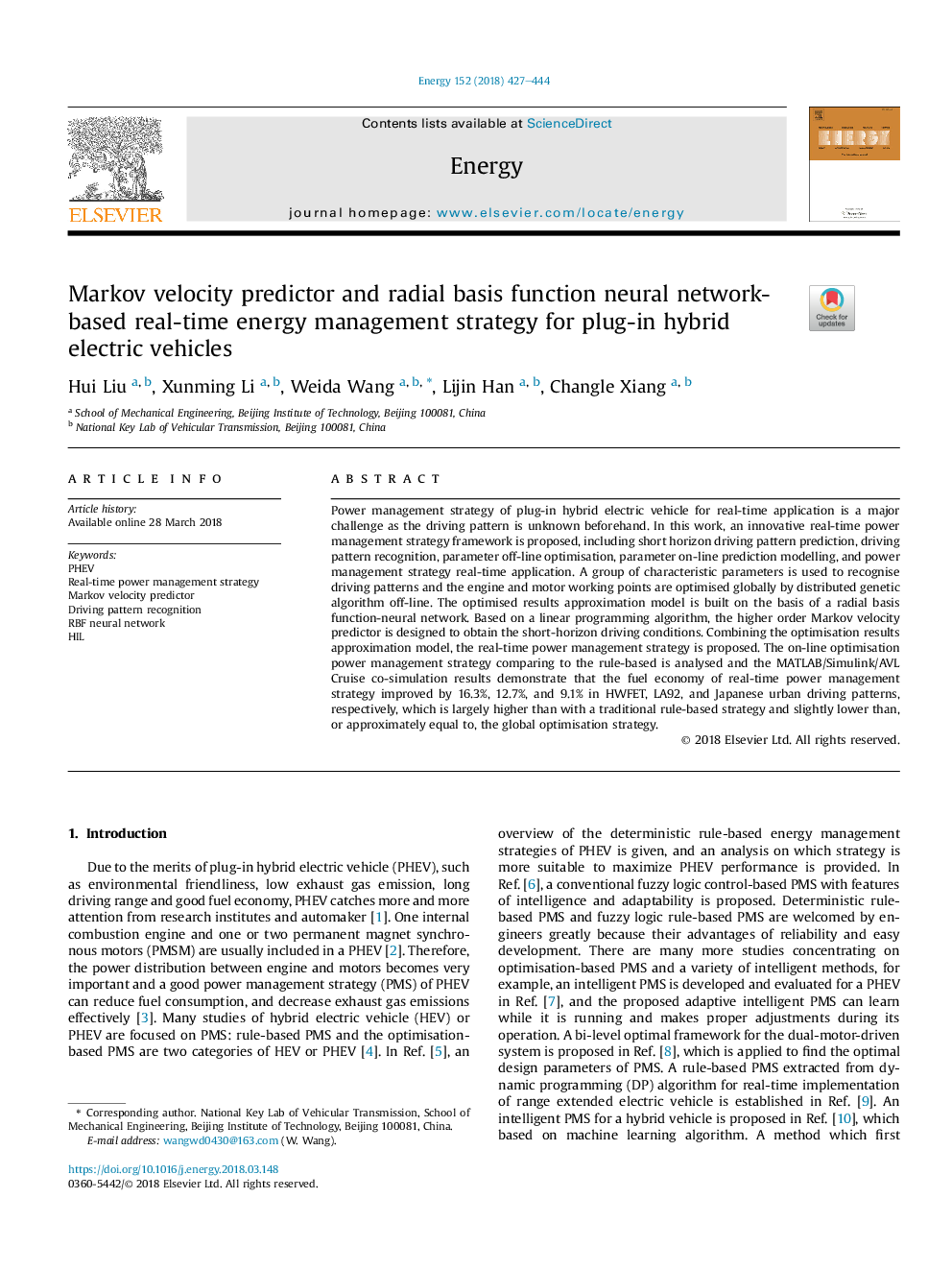ترجمه فارسی عنوان مقاله
پیش بینی کننده سرعت مارکف و عملکرد پایه شعاعی استراتژی مدیریت زمان انرژی مبتنی بر شبکه عصبی برای پلاگین وسایل نقلیه هیبریدی
عنوان انگلیسی
Markov velocity predictor and radial basis function neural network-based real-time energy management strategy for plug-in hybrid electric vehicles
| کد مقاله | سال انتشار | تعداد صفحات مقاله انگلیسی |
|---|---|---|
| 91071 | 2018 | 18 صفحه PDF |
منبع

Publisher : Elsevier - Science Direct (الزویر - ساینس دایرکت)
Journal : Energy, Volume 152, 1 June 2018, Pages 427-444

